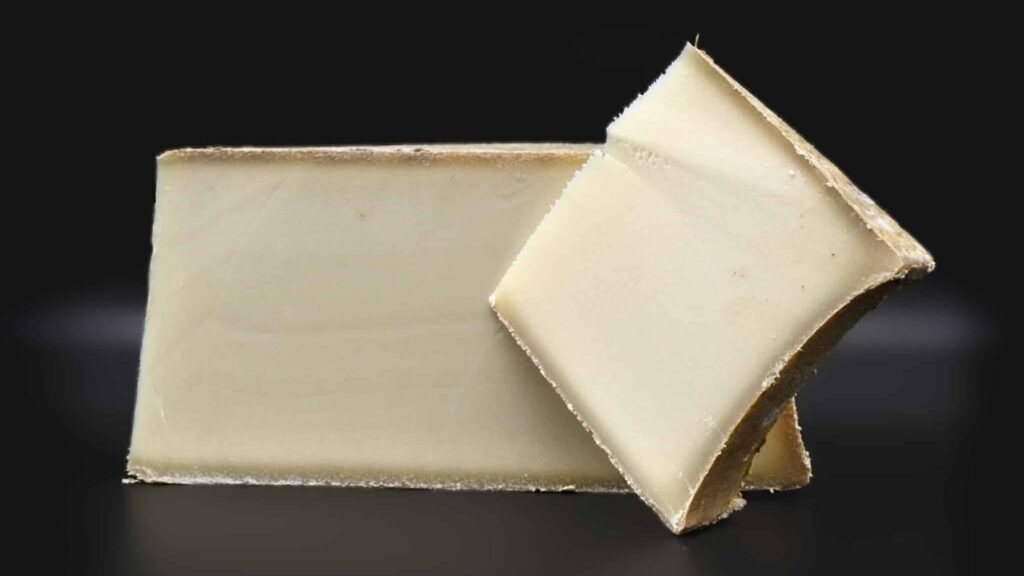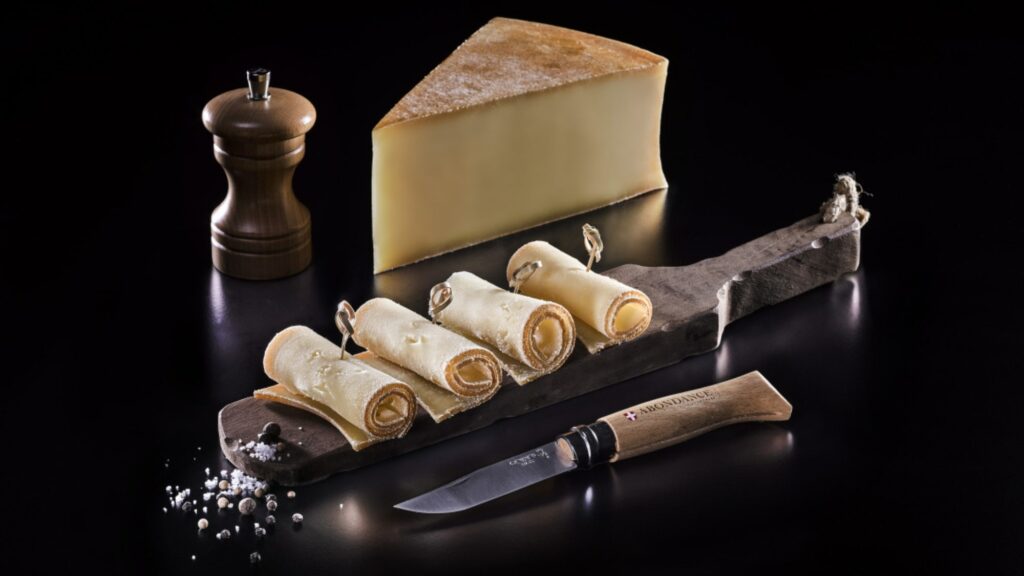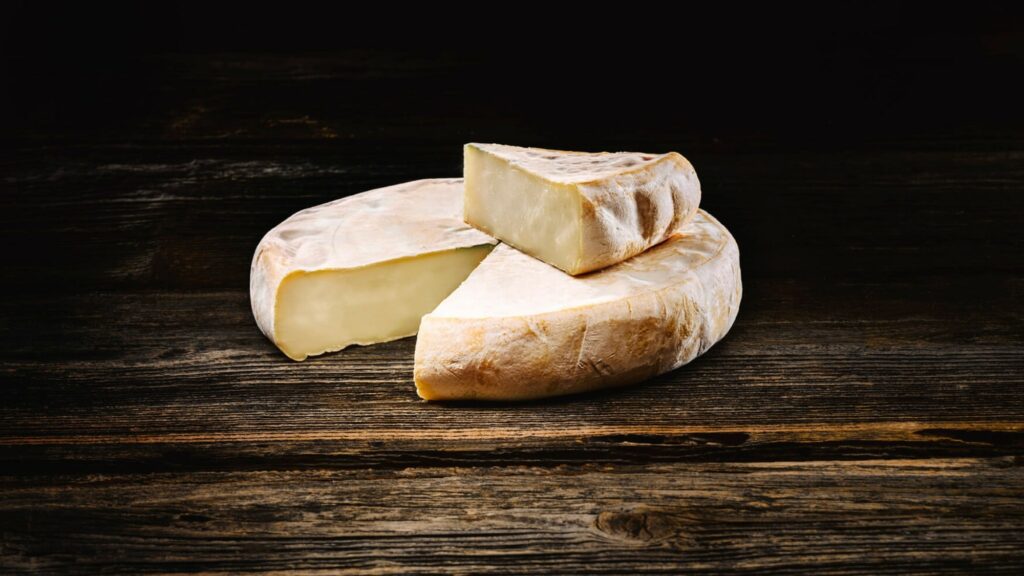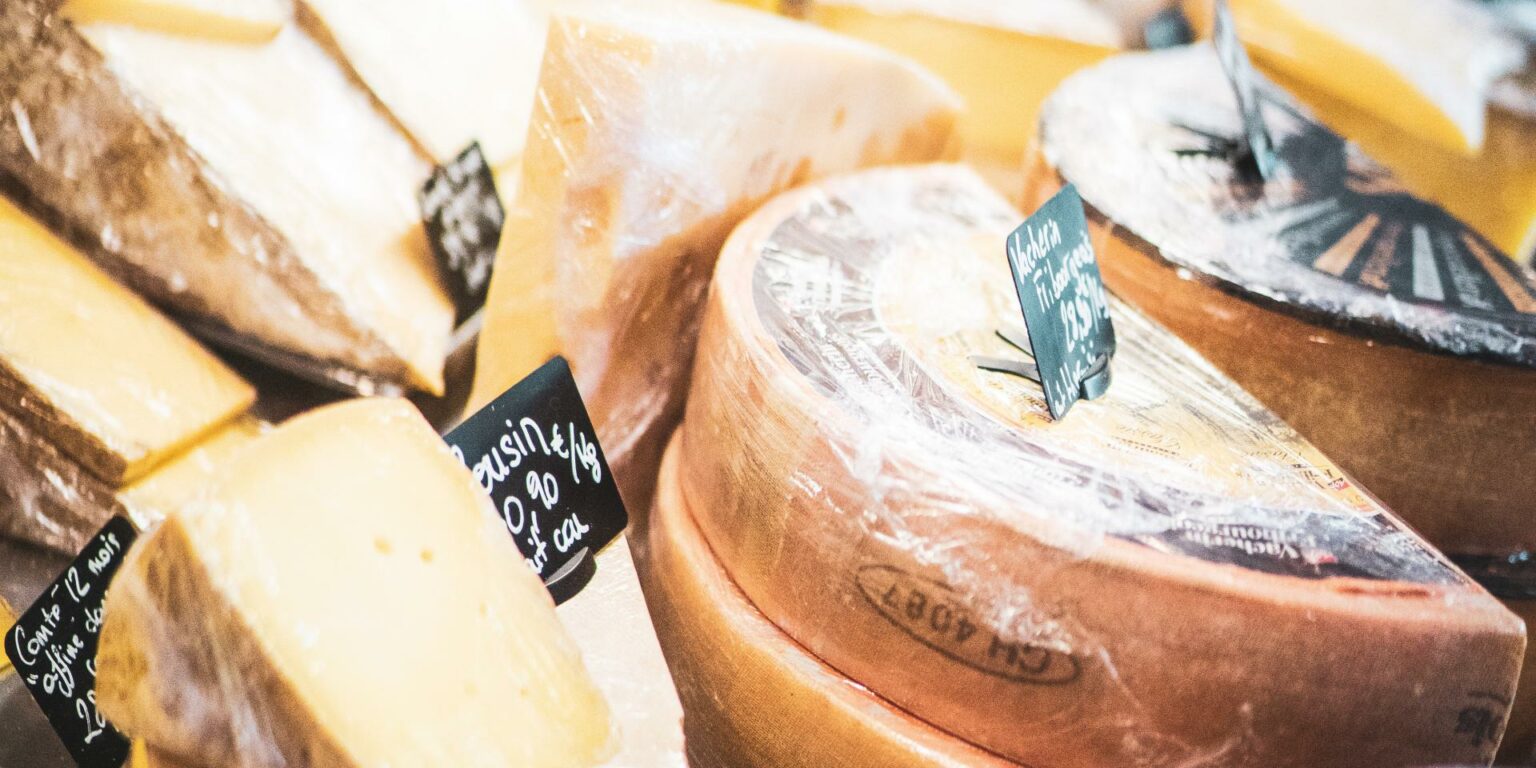High-altitude cheeses, emblematic products of the French mountain pastures, reflect the richness and diversity of the mountain terroirs. Among them, Beaufort, Abondance and Reblochon stand out for their unique flavours and age-old production methods.
Beaufort: the "Prince of Gruyères
Originally from the Beaufortain valley in Savoie, Beaufort is a pressed, cooked cheese made exclusively from the raw milk of cows of the Tarine and Abondance breeds. Its production follows a rigorous process: after milking, the milk is heated in copper cauldrons, then renneted to obtain the curds.

The cheese is cut, stirred and heated again before being moulded and pressed. The cheeses are then immersed in brine and matured in a cellar for several months, developing their natural rind and melting paste with subtle aromas.
Abondance: a subtle taste of hazelnut
Produced in the Abondance valley in Haute-Savoie, this semi-hard pressed cheese is made from the raw milk of Abondance cows.

The production process is similar to that for Beaufort, but with its own specific features: after the curds are removed, they are heated to a lower temperature, giving Abondance its supple texture and delicate hazelnut flavour. The cheeses are matured for a minimum of three months, during which time they develop their characteristic morgée rind.
Reblochon: a farming trick turned tradition
Born in the 13th century in the Aravis mountains, Reblochon owes its name to a fraudulent practice by farmers who, to reduce the tax on milk, carried out a partial second milking, known as "rebloche".

This richer milk was used to make this pressed, uncooked cheese. The raw milk is renneted at a moderate temperature, then the curds are moulded and lightly pressed. After salting in brine, the cheeses are matured on spruce boards for at least two weeks, developing a fine rind and a creamy paste with lactic aromas.
Traditional manufacturing: preserving know-how
The production of these mountain cheeses is based on traditional methods handed down from generation to generation. The cows are milked, often by hand, to produce a high-quality raw milk, rich in aromas thanks to the diversity of flora found in the high-altitude pastures.
READ MORE: Recipe: Which cheeses should you choose for a fondue?
Heating the milk over a wood fire, which is still practised in some mountain pastures, gives the cheeses their special flavour. Ripening in the cellar, under specific temperature and humidity conditions, is a crucial stage where each wheel receives regular care, such as brushing and turning, to develop its rind and refine its aromas.

